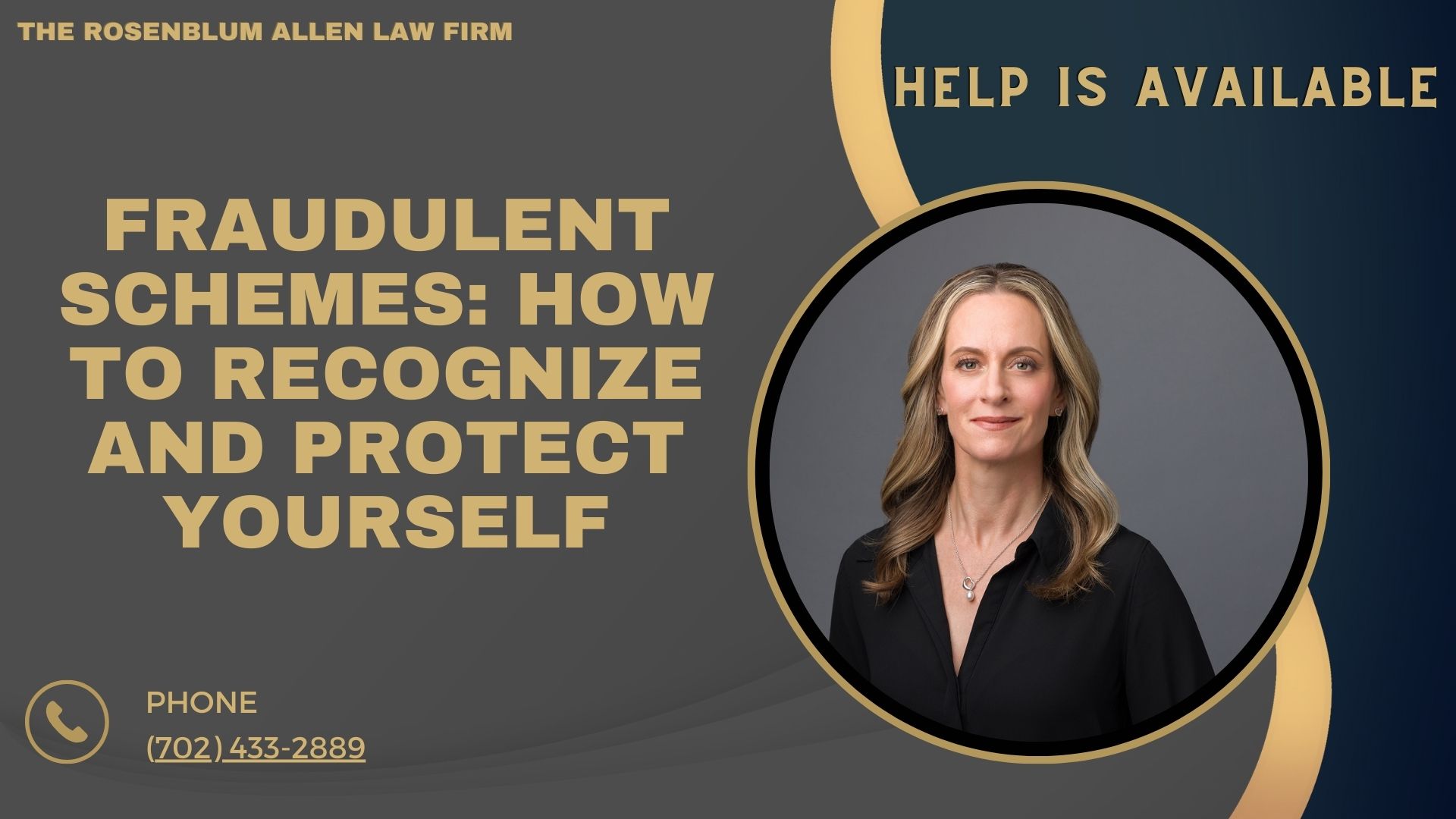Fraudulent schemes are tricks. People or groups use them to get money, property, or personal information illegally. These schemes are often complex and hard to recognize. They often mimic real business or personal interactions.
Importance of Awareness
Awareness of fraudulent schemes is crucial in today’s world. Fraudsters are becoming more sophisticated. Knowing about the types of fraud can help you avoid becoming a victim. This knowledge protects your financial assets, personal information, and peace of mind.
Overview of Common Types
Fraudulent schemes come in many forms. Some of the most prevalent include:
Investment Fraud
Consumer Fraud
Corporate Fraud
Online Fraud
Each type has unique traits and ways of working. We will explore them in detail.
Types of Fraudulent Schemes
Investment Fraud
Investment fraud involves scams. Fraudsters use false information to induce people to make investments. This leads to big financial losses.
Ponzi Schemes
Ponzi schemes promise high returns with little risk. They pay returns to earlier investors using the capital from new investors. These schemes collapse when new investments slow. There isn’t enough money.
Characteristics of Ponzi Schemes
High Returns with Little Risk: Promises consistent, high returns with minimal risk.
Reliance on New Investors: Uses funds from new investors to pay returns to earlier investors.
The certainty of Collapse: Eventually, it collapses when new investments slow down.
Famous Examples
Bernie Madoff: Ran one of the largest Ponzi schemes in history, defrauding investors of billions of dollars.
Charles Ponzi: The originator of the scheme, promising high returns from international reply coupons.

Pyramid Schemes
Pyramid schemes involve recruiting members who pay a fee to join. Each new member recruits others, and their fees fund the returns to earlier members. Like Ponzi schemes, they collapse when recruits dwindle.
How Pyramid Schemes Work
Membership Fees: Participants pay to join and are promised returns for recruiting others.
Recruitment Focus: Earnings are based on the number of recruits rather than actual sales or investments.
Eventual Collapse: Fails when the pool of potential recruits runs out.
Legal Consequences
Fines and Imprisonment: Participants can face significant legal penalties.
Financial Losses: Many lose their entire investment when the scheme collapses.
Pump and Dump Schemes
Pump and dump schemes involve inflating stock prices with lies. Fraudsters sell their overvalued shares at a high price. This leaves other investors with worthless stock when the price plummets.
Mechanism of Pump and Dump
Inflation of Stock Price: Fraudsters buy a large amount of stock and spread false positive information.
Selling at Peak: They sell their shares at an artificially inflated price.
Price Crash: The stock price crashes, leaving new investors significant losses.
Red Flags to Watch For
Unsolicited Stock Tips: Be wary of investment tips from unknown sources.
Pressure to Invest Quickly: Scammers often create a sense of urgency.
Unusual Price Movements: Look out for dramatic price increases without solid business reasons.

Consumer Fraud
Consumer fraud targets individuals directly, aiming to steal money or personal information. It includes identity theft, credit card fraud, and phishing scams.
Identity Theft
Identity theft occurs when someone steals your personal information to commit fraud. This can lead to unauthorized transactions. It can also lead to account openings in your name and other financial crimes.
Methods of Identity Theft
Phishing Emails: Emails that appear legitimate but ask for personal information.
Skimming Devices: Devices placed on ATMs or gas pumps to capture card details.
Data Breaches: Hackers steal large amounts of personal data from companies.
Preventive Measures
Strong Passwords: Use unique, complex passwords for all accounts.
Regular Monitoring: Check your credit report and bank statements regularly.
Caution with Information: Be wary of sharing personal information online or over the phone.
Credit Card Fraud
Credit card fraud involves unauthorized use of your card information. It is used to buy or withdraw money. This can result from stolen cards, data breaches, or skimming devices.
Standard Techniques Used by Fraudsters
Data Breaches: Stealing card information from company databases.
Skimming Devices: Capturing card details at ATMs or gas pumps.
Phishing Scams: Obtaining card numbers and PINs through deceptive communication.
How to Protect Your Card Information
Enable Alerts: Set up transaction alerts to monitor activity.
Regular Reviews: Frequently check your statements for unauthorized charges.
Secure Shopping: Use secure websites (look for HTTPS) when shopping online.
Phishing Scams
Phishing scams trick people into giving information. They do this by pretending to be a real entity, like a bank or government agency.
Email Phishing
Fraudulent emails that mimic reputable sources.
Often include links to fake websites designed to steal information.
Phone Phishing (Vishing)
Calls from scammers pretending to be from banks or tech support.
They request personal information or payments.
How to Spot Phishing Attempts
Spelling and Grammar Errors: Legitimate companies rarely make such mistakes.
Email Address Check: Verify the sender’s email address.
Suspicious Links: Avoid clicking links in unsolicited emails; hover to see the URL.

Legal Aspects of Fraudulent Schemes
Laws and Regulations
Federal Laws Against Fraud:
The Securities Act of 1933 Regulates securities transactions to protect investors.
The Sarbanes-Oxley Act of 2002 Sets new standards for public companies and accounting firms.
The Federal Trade Commission Act: Prohibits unfair or deceptive business practices.
Enforcement Agencies
Securities and Exchange Commission (SEC): Enforces laws against market manipulation.
Federal Trade Commission (FTC): Protects consumers from fraudulent practices.
Federal Bureau of Investigation (FBI): Investigates complex financial fraud cases.
State Laws and Variations
States have their fraud laws and penalties.
Examples include California’s False Claims Act and New York’s Martin Act.
Laws and enforcement practices can differ significantly from state to state.

Reporting Fraud
If you suspect fraudulent activity, it’s essential to report it promptly. Reporting fraud helps protect you. It also prevents others from falling victim to the same scheme. Here’s what you need to know about reporting fraud:
How to Report Suspected Fraud
Contact Relevant Authorities: Depending on the nature of the fraud, you may need to contact different agencies or organizations. For example, report investment fraud to the Securities and Exchange Commission (SEC). Report consumer fraud to the Federal Trade Commission (FTC).
Provide Evidence and Information: Provide as much detail as possible when reporting fraud. This may include copies of emails or documents. It should also have transaction records and other evidence that support your claim.
Legal Processes After Reporting
Investigation Steps: Once you report fraud, authorities will investigate the matter. This may involve gathering evidence, interviewing witnesses, and analyzing financial records.
Possible Outcomes and Penalties: If the investigation reveals fraudulent activity, the perpetrators may face legal consequences such as fines, imprisonment, or restitution to victims.
Protecting Yourself from Fraudulent Schemes
Prevention is vital when it comes to protecting yourself from fraudulent schemes. Here are some proactive steps you can take. They will protect your finances and personal information.
Personal Precautions
Educate Yourself and Stay Informed: Stay updated on the latest fraud trends and scams by following reputable sources such as government agencies, consumer protection organizations, and financial institutions.
Monitor Financial Accounts: Review your bank statements, credit card transactions, and investment accounts for suspicious activity. Set up alerts for unusual transactions or account access.
Preventive Tools and Services
Fraud Protection Services: Consider enrolling in fraud protection services banks or credit monitoring companies offer. These services can provide alerts for suspicious activity and offer identity theft insurance.
Legal Assistance: If you’ve been a victim of fraud or suspect fraudulent activity, seek legal assistance from a qualified attorney specializing in fraud cases. They can advise you on your rights and options for recourse.
These steps can help reduce the risk of falling for fraud. They also ensure financial security in our digital world. Stay vigilant and be proactive in protecting yourself from fraud.

Additional Resources
In addition to this guide, many resources are available to help you understand and fight fraud. Here are some valuable resources:
Links to Government and Legal Resources
Securities and Exchange Commission (SEC): The SEC’s website offers information on investment fraud, including tips for investors on reporting suspected securities violations.
Federal Trade Commission (FTC): The FTC is a leading authority on consumer protection and provides resources on recognizing and reporting consumer fraud and identity theft prevention tips.
Federal Bureau of Investigation (FBI): The FBI investigates complex financial crimes, including corporate fraud and cybercrime. Their website offers insights into current fraud trends and alerts.
Recommended Reading and Websites
Consumer Financial Protection Bureau (CFPB): The CFPB provides resources and tools to help consumers make informed financial decisions and protect themselves from fraud.
Better Business Bureau (BBB): The BBB offers consumer reviews, scam alerts, and resources to help you research businesses and avoid fraudulent practices.
Financial Industry Regulatory Authority (FINRA): FINRA provides investor education resources, including information on preventing investment fraud and checking the background of financial professionals.
Contact Information for Reporting and Assistance
ReportFraud.ftc.gov: The FTC’s online portal allows you to report fraud, scams, and identity theft directly to the agency.
SEC Complaint Center: The SEC’s online portal allows you to submit complaints or tips about securities fraud or misconduct.
Local Law Enforcement: If you’ve been a victim of fraud, contact your local law enforcement agency to file a report. They can assist you in taking appropriate action and investigating the matter.

Breaking It All Down
We are finishing our exploration of fraudulent schemes and how to protect yourself. We must recap the key points. We must stress the importance of watchfulness in today’s digital world.
Recap of Key Points
Recognition: Understanding the common types and characteristics of fraudulent schemes is crucial for identifying potential threats.
Prevention: Taking proactive steps, such as monitoring financial accounts and staying informed, can help mitigate the risk of fraud.
Reporting: Reporting suspected fraudulent activity is essential for stopping scammers and protecting yourself and others from financial harm.
Resources: Utilizing government agencies, consumer protection organizations, and legal assistance can provide valuable support in combating fraud.
Importance of Vigilance
In a world where fraudsters constantly evolve tactics, vigilance is your best defense. Stay informed. Be cautious with your personal information. Report any suspicious activity quickly. By doing this, you can protect your finances and stop yourself from falling victim to fraud.
Encouragement to Stay Proactive
Fraudulent schemes may be pervasive, but they are not insurmountable. Remain proactive. Arm yourself with knowledge and resources. Then, you can navigate the digital landscape with confidence and resilience. Remember, you have the power to protect yourself and your loved ones from financial fraud.

Frequently Asked Questions
How can I recognize fraudulent schemes?
Fraudulent schemes often promise high returns with little to no risk. Be wary of unsolicited investment opportunities that sound too good to be true. Look out for red flags such as pressure to invest quickly or guarantees of large profits.
What should I do if I suspect a fraudulent scheme has targeted me?
If you suspect fraudulent activity, it’s crucial to report it immediately. Contact the relevant authorities. These include the Securities and Exchange Commission (SEC). They also include the Federal Trade Commission (FTC). Give them any evidence or information you have.
How can I protect myself from falling victim to fraudulent schemes?
Stay informed about the latest fraud trends and scams. Check your financial accounts often for suspicious activity. Be careful when sharing personal information online or over the phone. Consider enrolling in fraud protection services offered by banks or credit monitoring companies.
What legal consequences do perpetrators of fraudulent schemes face?
They may face significant legal penalties, including fines, imprisonment, and restitution to victims. Reporting fraudulent activity is essential for holding perpetrators accountable and preventing further harm.
Where can I find more information and resources about fraudulent schemes?
There are various resources available to help you understand and combat fraudulent schemes. Agencies like the SEC and FTC offer consumers valuable information and tools. The Better Business Bureau (BBB) provides consumer reviews, scam alerts, and resources. They help you research businesses and avoid fraud.

Additional Resources for You
Explore our additional resources below:
- Criminal Defense Attorneys: For effective legal defense in criminal cases.
- Las Vegas DUI Lawyer: If you’re facing charges related to driving under the influence in Las Vegas.
- Domestic Violence Lawyer Las Vegas: Legal representation for domestic violence cases in Las Vegas.
- Drug Possession Lawyer: Assistance with drug possession charges.
- Sex Crimes Attorney: Legal support for cases involving sex crimes.
- CPS Defense Attorney: Protection for those facing child abuse or neglect accusations.
- Misdemeanor Lawyer: Representation for misdemeanor offenses.
- Las Vegas Warrant Defense Attorney: Help with legal matters related to warrants in Las Vegas.
- Las Vegas Probation Violation Attorney: Legal assistance for probation violation cases.
- Theft Crime Defense Lawyer: Defense against theft crime allegations.
- Kidnapping Lawyers: Legal support for kidnapping charges.
- Juvenile Defense Lawyers: Representation for juvenile defense cases.
- Firearms Lawyer Las Vegas: Assistance with legal matters related to firearms in Las Vegas.

Outside Resources for You
Here are some offsite resources for you:
Federal Bureau of Investigation (FBI): Offers insights into financial crimes, including fraud and scams.
Consumer Financial Protection Bureau (CFPB): Provides resources and tools to help consumers make informed financial decisions and protect themselves from fraud.
Financial Industry Regulatory Authority (FINRA): Offers investor education resources, including information on avoiding investment fraud and checking the background of financial professionals.
Internet Crime Complaint Center (IC3): Accepts online Internet crime complaints from either the person who believes they were defrauded or from a third party to the complainant.
U.S. Securities and Exchange Commission (SEC): Provides investor education resources and information on reporting securities violations.
Federal Trade Commission (FTC): Offers resources on recognizing and reporting consumer fraud, as well as identity theft prevention tips.
Better Business Bureau (BBB): Provides consumer reviews, scam alerts, and resources to help you research businesses and avoid fraudulent practices.

A Special Message from Our Lead Attorney, Molly Rosenblum Allen, Esq

Thank you for taking the time to explore our resources. Call (702) 433-2889 to schedule a free consultation. Do this if you have legal concerns or need help. We’re here to help you navigate your legal matters.






